Ch. 8: NSW & EOD
1/24
There's no tags or description
Looks like no tags are added yet.
Name | Mastery | Learn | Test | Matching | Spaced |
|---|
No study sessions yet.
25 Terms
Know mission sets, capabilities, limitations of NSW
conduct special operations in any environment, especially maritime and riverine areas
ability to conduct high-risk missions and provide real-time intelligence
Primary core tasks: direct action, special recon, counterinsurgency, counterterrorism, SECFOR assistance, foreign internal defense
Secondary Core tasks: Information Operations, Unconventional warfare, prep of environment
Limitations: conservation of forces, sustained engagement, timing, support
Know the historical reasons for creation of Naval Combat Demolition Units (NCDUs)
specifically created to train personnel for European operations in WWII
utilized to destroy an array of barriers and underwater obstacles
Know the historical reasons for creation of Underwater Demolition Teams (UDTs)
founded in Nov 1943 in response to challenges faced by USMC in amphibious landing on Tarawa
Navy needed a unit that could provide hydrographic reconnaissance and underwater demolition of obstacles prior to an amphibious landing
performed mine clearing and demolition raids during Korean War and canal clearance ops in Vietnam War
Know the historical reasons for creation of modern SEAL teams
Beginning in 1961, the CNO stressed the need for a naval unit with unconventional warfare capabilities
President JFK recognized importance of such a unit and in 1962 established SEAL teams 1 and 2
Know the role LCDR Draper Kauffman played during WWII and his significance to development of NSW
known as the “father of naval combat demolition”
established NCDU training school in Fort Peirce, FL to train personnel specifically for European operations in WWII
Understand organization of SEAL teams
NAVSPECWARCOM is two-star admiral HQ in Coronado, CA
echelon II command under combatant command of USSOCOM
Deployable NSW forces are assigned to one of six NSW groups
NSWGs 1 and 2 command 8 active duty SEAL teams
NSWG 3 is responsible for NSW forces conducting undersea special operations worldwide
NSWG 4 organizes personnel to deploy combat-ready forces and maritime mobility systems
NSWG 10 is responsible for intelligence, surveillance, reconnaissance
NSWG 11 is responsible for NSW Reserve components
Understand composition of SEAL teams
three troops with 2 platoons each, C2 element, and mobile support element that is deployable overseas
SEAL officer’s progress is squad leader (LTJG/LT) → Platoon Commander (LT) → Troop Commander (LCDR) of 3 SEAL platoons
approx. 300 personnel in each SEAL team
Know purpose and mission areas of Navy EOD: Special Operation Forces (NAVSOF & SOF) Support
Navy EOD techs lead their expertise to SOF units to ensure they achieve mission success
Navy EOD techs participate in advanced training with SOF unit to include close quarters combat, advanced freefall parachuting, and other specialized techniques
Know purpose and mission areas of Navy EOD: Expeditionary Mine Counter Measures (ExMCM)
EOD units are able to deploy as an Expeditionary MCM package comprised of UUVs and EOD technicians
expeditionary MCM package is able to provide additional options for fleet commanders around the world
EOD personnel are specifically tasked with diving, detecting, rendering safe, disposal of armed underwater ordnance, and rendering safe dud-fired mines, torpedoes, limpet mines, and depth charges
Know purpose and mission areas of Navy EOD: EOD MOB/CES Platoons
standard mission area for Navy EOD platoons
MOB platoons are standard operating force in Navy EOD
MOB platoons support conventional Army units in Counter IED operations
Know purpose and mission areas of Navy EOD: Combined Explosives Exploitation Cell (CEXC) Platoons
conduct weapons technical exploitation operations on recovered IEDs, ordnance, and other captured enemy materials
platoons normally operate in combat and high threat environments where enemy use of IEDs is prevalent
technical intel produced by CEXC supports decision making at all levels of warfare, primarily tactical commanders
Know purpose and mission areas of Navy EOD: Mobile Diving and Salvage (MDS) Companies
All Navy EOD techs are Navy divers and are trained in open-circuit SCUBA and Mk-16 Mod 1
Navy EOD officers also serve at Mobile Diving and Salvage Units (MDSU) with Navy divers in order to conduct salvage, recovery, ship’s husbandry, deep submergence, and saturation operations
Know purpose and mission areas of Navy EOD: U.S. Secret Service Support (USSS)
EOD techs regularly perform USSS support in order to mitigate and eliminate explosive hazards, allowing for travel all over the planet
provide direct support ISO POTUS, VPOTUS, FLOTUS, SECSTATE and foreign heads of state
Know what drove need for ordnance disposal skills and creation of EOD community
need recognized during WW2, as German and Japanese military operations left behind large quantities of dud-fired ordnance
Mine Disposal school was founded in 1941 and bomb disposal school was founded in 1942
Understand the organization of Navy EOD
comprised of approx. 425 officers and 1200 enlisted personnel
all 4 services have EOD techs
The TYPCOM for Navy EOD is NECC → divided into two groups → each group contains EOD mobile units comprised of companies and platoons
Each EOD platoon consists of 1 officer and 3-11 enlisted EOD techs
Know the visual identification, mission, and capabilities of the Naval Special Warfare Craft: Mark VIII SEAL Delivery Vehicle
Mission: electrically powered, designed to deliver up to 6 combat swimmers + equipment. When it submerges the hull is completely flooded and swimmers are wearing underwater breathing apparatus.
Speed: 6kts
Range: 70mi
Crew: 6

Know the visual identification, mission, and capabilities of the Naval Special Warfare Craft: Mine-Resistant Ambush Protected Vehicle (MRAP)
Mission: ground mobility vehicle used to carry SEALs in variety of terrain, designed to protect crew from explosive events
Speed: 60+ mph
Range: 420mi
Payload: varies significantly
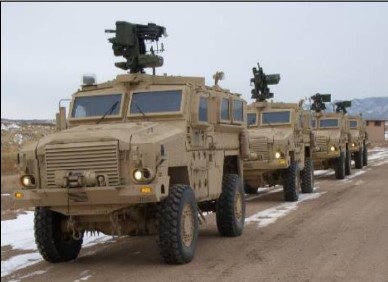
Know the visual identification, mission, and capabilities of the Naval Special Warfare Craft: Rotary Wing and Tilt Rotor Aircraft
Mission: provide precision overland and overwater insertion and extraction, ISR, fire support, and used by SEAL snipers as overwatch platforms
Speed: RW 110-170kts / TR 250kts
Range: varies significantly
Range: varies significantly
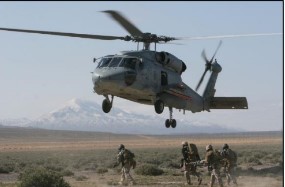
Know the visual identification, mission, and capabilities of the Naval Special Warfare Craft: Combatant Craft: Assault (CCA) / Medium (CCM) / Heavy (CCH)
Mission: insertion and extraction of Navy SEALs in medium-to-high threat level environments

Know the visual identification, mission, and capabilities of the Naval Special Warfare Craft: Lightweight Tactical All-Terrain Vehicle (LT-ATV)
Mission: move operators and equipment in technical terrain
Speed: varies significantly
Range: varies significantly
Payload: 2-4 operators w/ various modifications

Know tools and equipment Navy EOD Technicians use: Foster-Miller TALON Bomb Robot
weight: 115-156lbs
payload capacity: 100lbs
arm lift: 10lbs at full extension, 20lbs total lift
cameras: 3 IR-illuminated
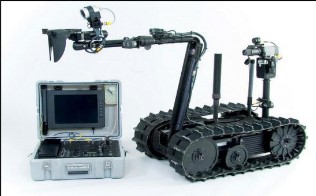
Know tools and equipment Navy EOD Technicians use: iRobot EOD Packbot Bomb Robot
weight: 68lbs
payload capacity: 46lbs
arm lift: 10lbs at full extension, 30lbs total lift
cameras: 4 total: 2 color, 1 drive, 1 surveillance
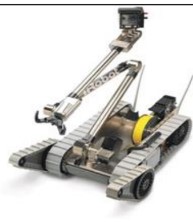
Know tools and equipment Navy EOD Technicians use: MK-16 Mod 1 Underwater Breathing Apparatus (UBA)
produces no bubbles, instead CO2 is recycled with low acoustic and magnetic properties
electronically driven, uses 3 oxygen sensors
capable of diving to 300 feet of sea water
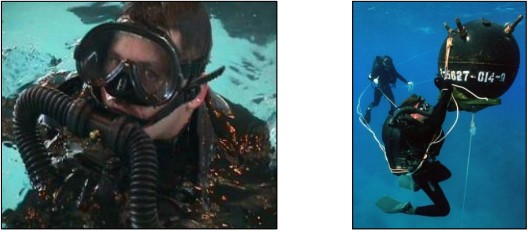
Know tools and equipment Navy EOD Technicians use: MED-ENG EOD IX Bomb Suit
provides extensive blast and fragmentation protection
multiple layers: trousers, groin protector, torso, helmet
fan and full body cooling system
weighs over 85 lbs
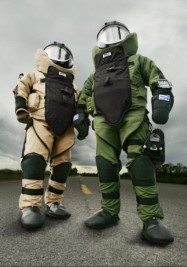
Know difference and relationship between EOD Technicians and Officers
enlisted EOD techs must spend 2 years before taking a board to become a senior EOD tech → 30-day board process to earn Master EOD badge
EOD officers graduate NAVSCOLEOD as basic EOD techs → 18-24 months demonstrating proficiency to earn qualification as EOD officer